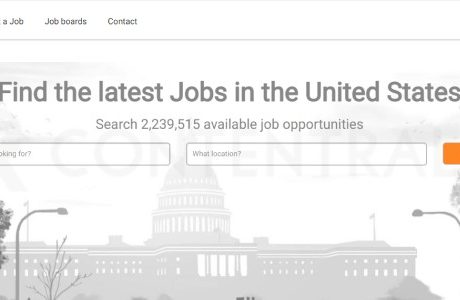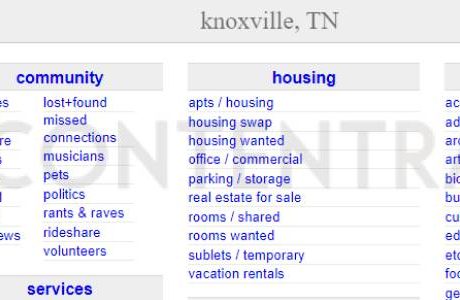There are many different degree programs that professionals with established careers have looked to as a way of improving their prospects, but a master’s in Business Analytics is one of the newer educational programs on the market.
Despite being younger than other traditional business degrees, the master’s in Business Analytics has proven popular, with a range of students looking to give themselves an edge in an increasingly competitive job market.
What, exactly, is business analytics, and is it worth the effort it takes to earn one?
What Is A Master’s In Business Analytics?

Although a business analytics curriculum will vary between institutions and programs, all offerings tend to encompass a few main elements. This includes the advanced use of quantitative and analytical tools to enhance strategic business decisions.
Students in this program will become adept at manipulating large datasets and applying this information in real-world settings. As a result, students will be better equipped to make data-backed judgments in a wide range of business and organizational settings.
This could include coursework that covers everything from machine learning and algorithms to probability, advanced computation, and more. In addition to giving you the tools to mine and gather this data, it will also equip you with decision-making frameworks to put it to use.
Sample modules could include business analytics in practice, big data for decision making, data mining, web analytics, and effective management consultancy.
What Skill Set Does A Master’s In Business Analytics Give You?

The unique structure and content of master’s in Business Analytics programs give you the opportunity to develop and refine many of the technical skills that are demanded by employers across a wide range of industries and sectors.
These include the course master in business analytics.
Problem-solving skills: Develop competence by using analytical tools along with multiple SEO techniques. That produces effective team management and changes it within a data-driven team along with other organizations.
Strategic decision-making: Uncover patterns, correlations, market trends, and customer preferences that can be used to make informed decisions in commercial environments
Analytical enterprise: Refine your analytical skills and learn how to apply software packages, machine learning, textual analysis, and predictive modeling
With this in mind, here are some of the main benefits associated with a master’s in Business Analytics degree:
- Increase your earning potential by becoming a candidate for senior management positions
- Create career options in a diverse range of sectors and industries
- Increase your influence within your current business or organization
- Equip yourself with an increasingly in-demand set of skills
- Build confidence in your own analytical and decision-making abilities
Are Masters In Business Analytics Graduates In Demand?

The skills that a master’s in Business Analytics provides you with are in high demand these days, which is another benefit of pursuing this program. You know what the analytics meaning is.
In fact, the commercial demand for graduates who can analyze data and put it to use, solving complex business problems, has never been higher.
There are two broad trends creating this demand. Firstly, businesses are more sensitive than ever to the need to use data when making business decisions. In addition, businesses are now able to capture an increasingly diverse and voluminous array of data using a variety of different tools.
However, while businesses and organizations realize just how important big data is to their organizational or commercial outcomes, they are also faced with a deficit of qualified individuals who can make use of this data.
The national labor database Burning Glass has recently reported a 14.3% rise in business analyst jobs. Similarly, the Bureau of Labor Statistics has indicated that the job prospects for business analytics graduates have never been higher.
For those who are weighing the risks of undertaking a business analytics program, particularly given the costs associated with them, this can be viewed as a positive sign that you will likely see a return on your investment.
Although the demand is high for these skills, what specific career options will master in Business Analytics graduates have open to them?
Career Options For A Master’s In Business Analytics Graduate

Although the master’s in Business Analytics degree is open to individuals with essentially any academic or professional background, graduates of this program have found themselves in the following roles after graduation:
- Data scientist
- Business analyst
- Data analyst
- Digital strategy manager
- Digital or business consultant
- Business data analyst
Ultimately, this is only a small selection of the career options that are available to graduates of this program.
For example, graduates of the master’s in Business Analytics program from Aston University have ended up working in a wide range of different fields and disciplines, the human resources and strategic management-related operations, along with marketing and accounting. This includes postings at some of the world’s most valuable companies, such as Unilever, Lloyds TSB, Deloitte, and Rolls-Royce.
Who Is A Master’s In Business Analytics Suited To?

A master’s in Business Analytics is worth investing in if you want to learn how to interpret data and put it to use, solving complex organizational or commercial problems.
It is also useful if you want to increase your decision-making abilities, particularly if you are looking to increase your career prospects at the senior management level.
In both cases, a master’s in Business Analytics will give you the edge in an increasingly data-driven economy.
Is It Worth The Effort?
With all these benefits and potential career prospects in mind, you may still be wondering if a master’s in Business Analytics degree is worth the effort.
Ultimately, the answer to the question depends entirely on your own individual circumstances. If you are perfectly happy in your current job and don’t want to commit to an intellectually rigorous program of study to advance your career, there is certainly no requirement to undertake one.
However, if you have a sense that you are beginning to hit a wall in the progression of your career or you feel that you need to upskill in order to apply for more senior roles, a master’s in Business Analytics degree could be just what you need.
Additionals:






















